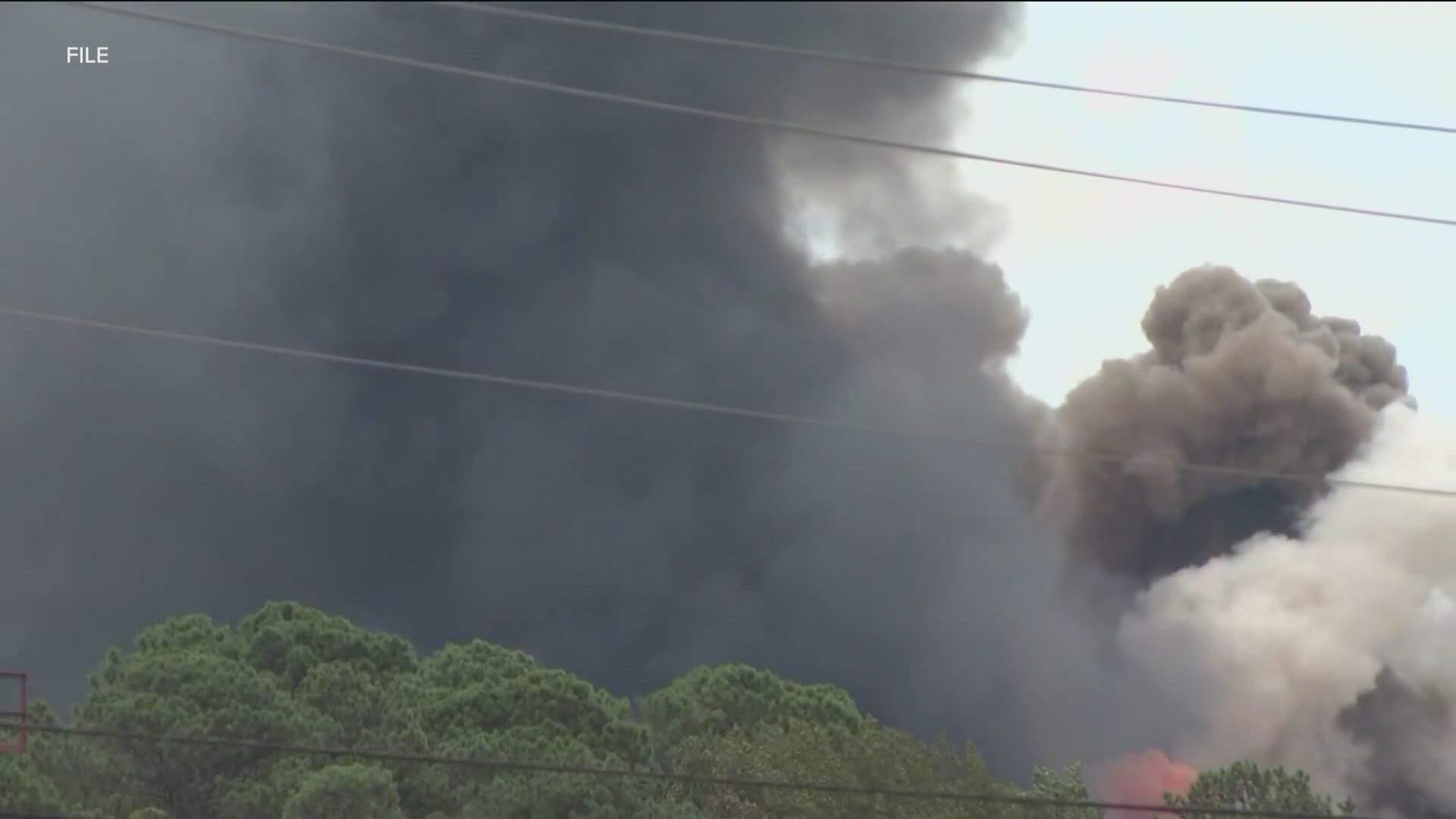CONYERS, Ga. — One of the consistent pieces of advice that officials have given since a chemical plume began emanating from a facility in Conyers following a fire Sunday is to close doors and windows and turn off air conditioning units.
For those nearer to the plume and getting more of that air, closing doors and windows certainly makes obvious sense. But why also the guidance on A/C units?
RELATED: Here's why the air quality around the Conyers chemical plume is worse overnight than during the day
The short answer is that it probably does not have a large effect -- most centralized HVAC systems do not pull in outside air -- but it's generally solid guidance in that if some kind of irritant has already gotten into your home, the A/C will keep recycling it through your home.
The IAQ Works HVAC industry information site notes: "If the air in your home is polluted with VOCs and allergens, your air conditioner is likely worsening the situation. Due to the fact that air conditioners recycle indoor air without purifying it, the unclean air circulating indoors further decreases indoor air quality."
Now, it's important to note that it's unclear what fully is gassing off into the air in Conyers, though officials have indicated the chemical compound "trichlor," typically a part of pool chlorination products, is a main component. It's not clear how trichlor, if present, might recirculate in a home HVAC system, but again the err-on-the-side-of-caution guidance is to not run A/C if it might recirculate trichlor or other chemicals in the air.
Then there are window cooling units, which sometimes do pull in outside air. You would generally not want to run those in a situation where the air quality is poor outside.
A TODAY article last year during the Canadian wildfires -- which sent smoke across parts of the U.S. -- noted: "Many window units pull in air from outside into the home and do not have strong filtration systems, whereas centralized AC and AC units attached to walls tend not to pull in air from the outside and usually filter well the little bit that might get inside, according to Good Housekeeping's experts... When running AC in poor air quality, it's important that its filter is up to date, so consider replacing it."
Important takeaways:
- Running A/C, because of how systems are usually designed, is not generally likely to have a strong exacerbating effect if your home is in the area of the plume. But public officials recommend turning it off if you're particularly close or particularly sensitive as a reasonable cautionary step.
- That cautionary step is reasonable because we don't really have a good sense for 1) what exact chemical mix is in the air and 2) how that chemical mix might seep into homes (as opposed to, say, particles from smoky air), how it might interact with HVAC systems or how it might get filtered.
- A small percentage of A/C units may pull in outside air and exacerbate the situation inside your home.

